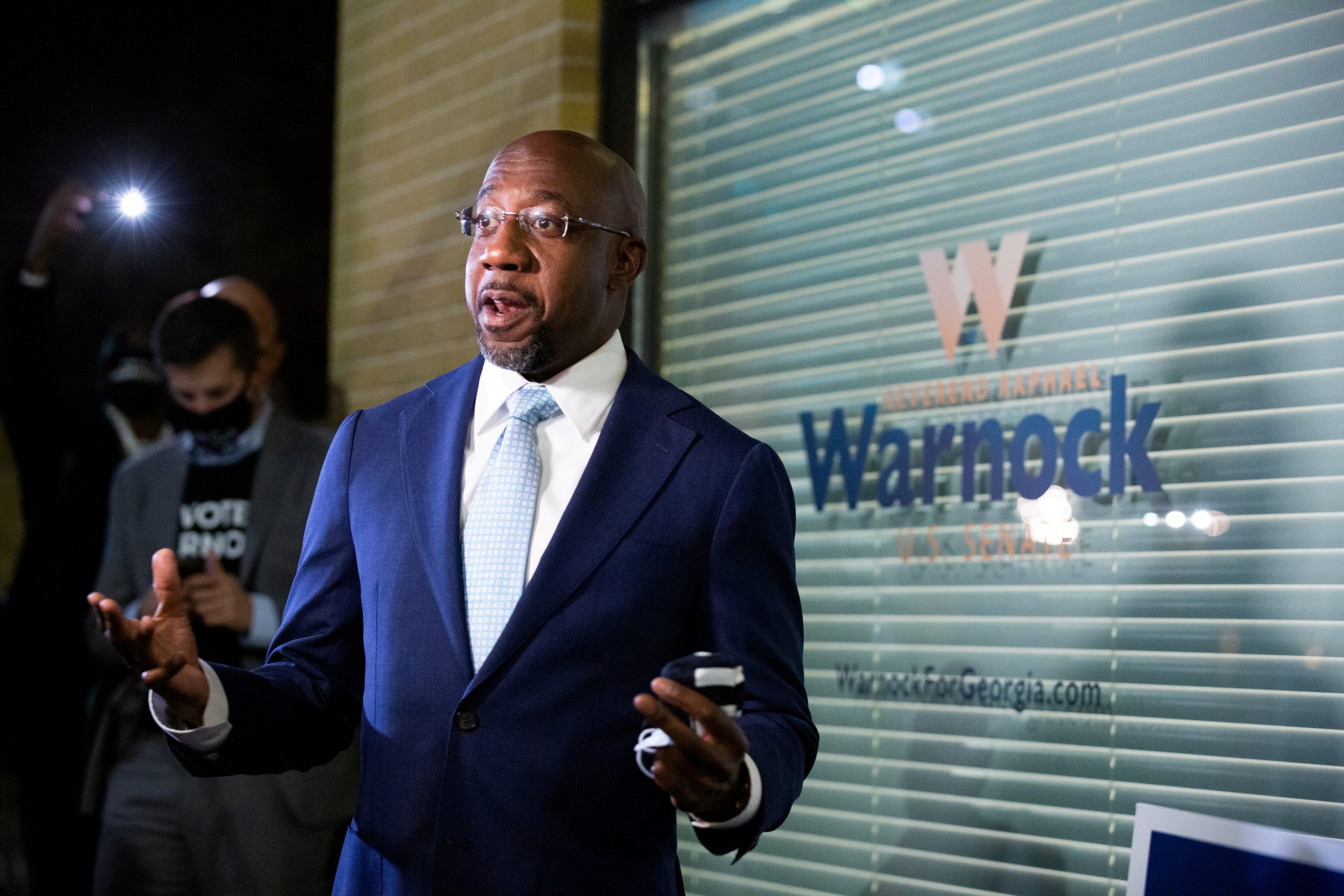Beau Davis, a 33-year-old security specialist from the Atlanta suburbs, is the kind of voter Republican Senators Kelly Loeffler and David Perdue may need to win runoff elections next month that will determine the balance of power in Washington.
But Davis, an independent who has voted twice for President Donald Trump, isn’t sure he will vote on Jan. 5. He dislikes Trump loyalist Loeffler’s campaign attacks on her Democratic opponent, the Reverend Raphael Warnock, a Black pastor at the Ebenezer Baptist Church in Atlanta, where slain civil rights leader Martin Luther King Jr. once preached.
“This is just getting ugly for no reason,” Davis said while Christmas shopping in the suburban city of Marietta, 20 miles (32 km) northwest of Atlanta.
“I don’t want to vote against her,” he added. “I just don’t know.”
Loeffler’s attack ads have sought to portray Warnock as a dangerous anti-American, anti-police, anti-Israel “Marxist” tied to Black Chicago pastor Jeremiah Wright and an infamous 2008 sermon in which he declared: “God damn America!”
A Warnock campaign spokesman described the attacks as an attempt to distract voter attention from Loeffler’s record on healthcare and other issues.
Loeffler and Perdue, who like their Democratic rivals Warnock and Jon Ossoff, are running virtually in unison, appear to have the advantage in a state that has historically backed Republican candidates.
The Republicans also enjoy a structural advantage: A victory by just one will preserve a one-seat Senate majority, and with it, the ability to block Democratic President-elect Joe Biden’s legislative agenda.
Other white suburban voters may share Davis’ concerns about Loeffler. “The imagery used certainly had a racial undertone, and I think that turned off voters in those suburban areas,” said Matt Towery, a former Georgia Republican legislator.
A spokesman for the Loeffler campaign said any potential issues with suburban voters are not borne out by polling data, which he said shows that her attacks on Warnock are working.
Loeffler won just 25.9% of the vote last month, less than Warnock’s 32.9%, amid a 20-candidate field that included Republican Representative Doug Collins, who drew 20% support. Recent opinion polls show a close race with Loeffler and Warnock swapping small leads and her running a point behind Perdue, according to the poll tracking website, FiveThirtyEight.com.
Trump is scheduled to hold a rally on Saturday in Valdosta, where Republicans hope he will urge his base supporters to vote for Perdue and Loeffler. But they worry Trump’s repeated attacks on Georgia Republicans over his election loss could prompt his base to stay home.
Some hardline Trump supporters, including his campaign’s former attorney Sidney Powell, are encouraging Republicans to withhold their support from Loeffler and Perdue to pressure state officials into calling for a special session of the Georgia General Assembly to address the election results.
DUELING MESSAGES
Republicans face the daunting task of trying to turn out two voting blocs: devoted Trump supporters who respond favorably to harsher rhetoric and moderate suburbanites who don’t.
“As the Republicans hit the accelerator to turn out the vote in south Georgia, middle Georgia and north Georgia, they also turn off white, higher-income voters in these suburban areas,” Towery said. “They have to have two messages.”
This is difficult in a nationalized, big money campaign, where according to the tracking firm AdImpact, a combined $310 million of TV air time has already been purchased or reserved.
Warnock and Ossoff are also battling for white suburban votes. Democrats will need about 30% of Georgia’s white voters, in addition to a coalition of Black, Latino and Asian voters to pierce the 50% mark needed for victory, political analysts say.
Loeffler and Perdue have to run up the margins in rural areas to win, said Republican strategist Chip Lake.
Both have treated Georgia voters to dire warnings about the consequences of a Democratic Senate majority. Perdue’s TV ads urge supporters to “save America” from higher taxes, open borders, defunded police departments, socialized medicine, military spending cuts, the Green New Deal and voting rights for illegal immigrants.
Loeffler, a wealthy businesswoman, has had to rely on advertising more heavily than Perdue to assure voters about her conservative credentials. As a result, political analysts say, she has more strongly paralleled Trump’s combative messaging style and agenda priorities, at one point describing herself as more conservative than Attila the Hun.
“Most of the messages Republicans are running are scare messages,” said Charles Bullock, political science professor at the University of Georgia. “They’re appealing to fear.”
(This story corrects to show $310 million of TV air time in paragraph 17)
(Reporting by David Morgan in Washington and Rich McKay in Marietta)















 Continue with Google
Continue with Google